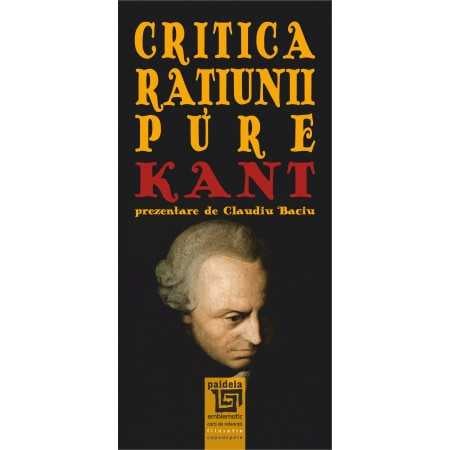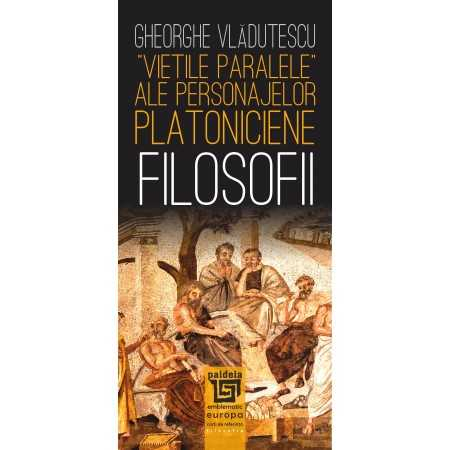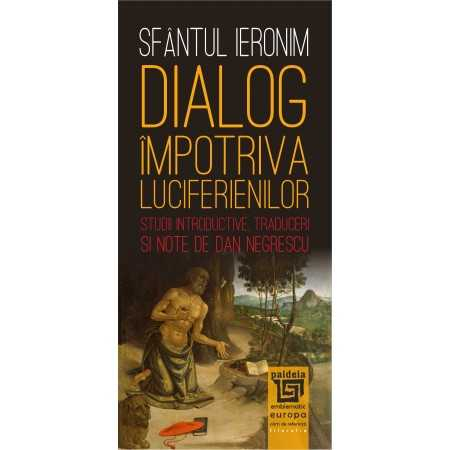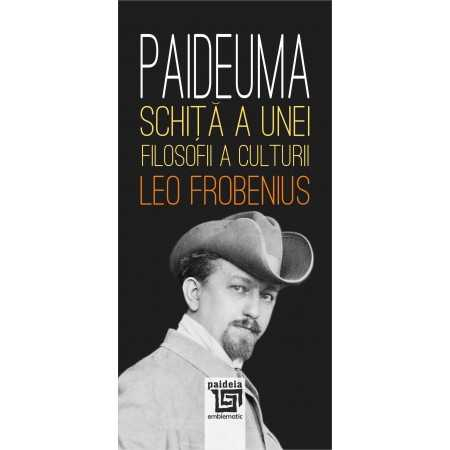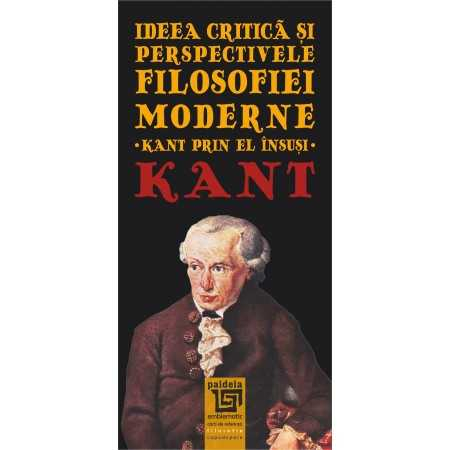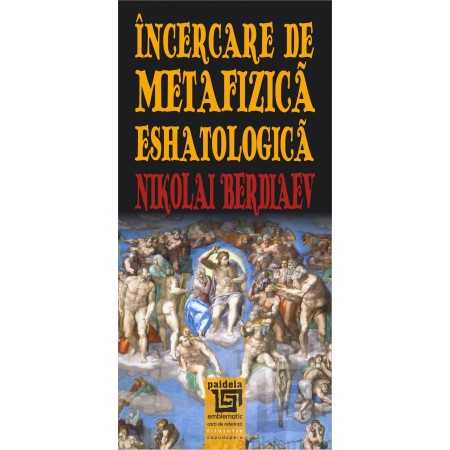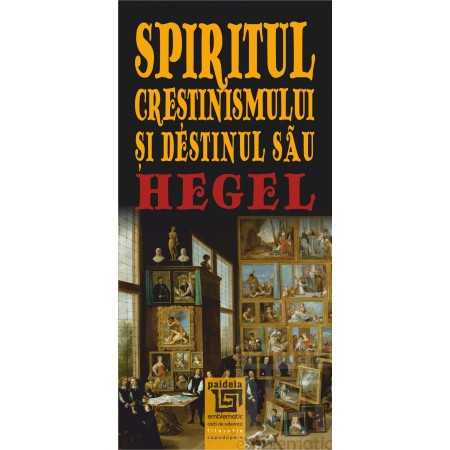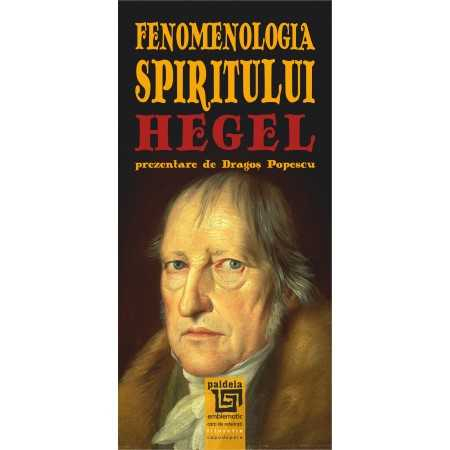Manuscript proposals: info@editurauniversitara.ro / 0745 204 115 //// Tracking orders Individuals / Sales:0745 200 718 / 0745 200 357 Orders Legal entities: 0721 722 783
Publisher: Editura Universitara
Author: Constantin Claudiu Cotan
Edition: I
Pages: 298
Publisher year: 2023
ISBN: 978-606-28-1687-2
DOI: https://doi.org/10.5682/9786062816872
Product Code:
9786062816872
Do you need help?
0745 200 718
/
0745 200 357
- Description
- Download (1)
- Authors
- Content
- More details
- Reviews (0)
We know God through prayer. During prayer we feel His comfort and His divine touch that warms our soul and fills us with the true joy of life. We say the prayer all the time, in the silence of the cell and the church, during our work, while serving our neighbor, the poor and helpless or the one on the bed of suffering, eager to hear the sweet name of Christ the Savior, the lover of people. The true sacrifice is following Christ's call, giving our life and loving God's creation. The one who loves Christ and serves his neighbor travels in life together with God.
-
Hesychia and philanthropy in the life of the Orthodox Church
Download
CONSTANTIN CLAUDIU COTAN
Introduction / 5
1. Rev. Prof. Univ. Dr. Habil. Constantin Claudiu Cotan, Neo-Hesychast personalities from the Greek space in the 18th century / 9
2. Archid. Prof. Univ. Dr. Habil. Viburnum Gel; Fr. Dr. Mircea L. Nincu, St. Pious Parascheva – icon of Romanian identity and model of pilgrimage for the Orthodox Christian believer / 18
3. Conf. Univ. Dr. Habil. Ion Gumenai, Paisie Velicikovski and the prayer of the mind. A less theological and more historical retrospective / 32
4. Rev. Prof. Univ. Dr. Nechita Runcan, Santul Paisie from Neamt, innovator of Romanian monasticism in the 18th century / 45
5. Prof. Conf. Univ. Dr. Marin Cojoc, University of Constantinople in the context of the Hesychast disputes / 64
6. Lect. Univ. Dr. Dumitru Carabas, Several churches built in the municipality of Constanta during the time of Archbishop Lucian Florea (1990‑2000) / 81
7. Lect. Univ. Dr. Chircalan Ionut, Love of enemies - a brief exposition from the biblical, patristic and historical perspective / 96
8. Rev. Dr. Adrian Vasilache, Perception of St. Grigore Palama and uncreated energies in German theology. A theological-terminological approach / 113
9. Fr. Drd. Gabriel Ciofu, Icon between holiness and sanctification / 119
10. Dr. Bogdan Mohor Obreja, Evolution of representations of the Great Martyr Saint George in Orthodox iconography / 132
11. Fr. Drd. Ionut Bogdan Vaduva, Philanthropy the form of Christian love in the Orthodox Church of Dobrogea / 142
12. Dr. Luca Bogdan Andrei, Prayer in the Lucanic writings, biblical-theological and pedagogical aspects "The main prayers presented by the Holy Evangelist Luke in the Third Gospel" / 154
13. Fr. Drd. Marius Balaban, Saint Athanasius the Great – defender of Orthodoxy in the middle of the 4th century / 164
14. Fr. Drd. Mihai Gheorghe Bretea, Interdisciplinary perspectives on neuroscience / 177
15. Hieromonah Drd. Constantin Andrei (Arsenie), Duty to God and love for neighbor in the current social context / 188
16. Dr. Morcov Elena, Love for one's neighbor / 198
17. Fr. Drd. Nicolae Nuca, The literary value of the Psalms of Metropolitan Dosoftei of Moldova / 207
18. Fr. Drd. Marinel Padure, Ensign of the Synod of Iasi (1642) for the defense of the true faith and the collaboration of Metropolitan Varlaam with ruler Vasile Lupu and Metropolitan Petru Movila / 216
19. Fr. Drd. Patrascu Nicu‑Adrian, Philosophical foundations of neopaganism / 226
20. Fr. Drd. Nicolae Gavrila, Church, State and philanthropy in the context of the current crises / 240
21. Dr. Silivestru George-Stefan, The Christian family between the transfiguring hysteria of love and the disfiguring utopia of the neo-Marxist nightmare / 252
22. Dr. Vosloban Catalin-Dumitru, Moral-theological challenges within the "Matic Report" to the traditional family / 262
23. Dr. Mihaela Stoicea, Saint Grigorie Palama – brand representative of the Eastern mystical tradition / 274
24. Rev. Prof. Univ. Dr. Habil. Constantin Claudiu Cotan, Christian spirituality from the lands of Sicily and southern Italy during the Byzantine rule / 285
1. Rev. Prof. Univ. Dr. Habil. Constantin Claudiu Cotan, Neo-Hesychast personalities from the Greek space in the 18th century / 9
2. Archid. Prof. Univ. Dr. Habil. Viburnum Gel; Fr. Dr. Mircea L. Nincu, St. Pious Parascheva – icon of Romanian identity and model of pilgrimage for the Orthodox Christian believer / 18
3. Conf. Univ. Dr. Habil. Ion Gumenai, Paisie Velicikovski and the prayer of the mind. A less theological and more historical retrospective / 32
4. Rev. Prof. Univ. Dr. Nechita Runcan, Santul Paisie from Neamt, innovator of Romanian monasticism in the 18th century / 45
5. Prof. Conf. Univ. Dr. Marin Cojoc, University of Constantinople in the context of the Hesychast disputes / 64
6. Lect. Univ. Dr. Dumitru Carabas, Several churches built in the municipality of Constanta during the time of Archbishop Lucian Florea (1990‑2000) / 81
7. Lect. Univ. Dr. Chircalan Ionut, Love of enemies - a brief exposition from the biblical, patristic and historical perspective / 96
8. Rev. Dr. Adrian Vasilache, Perception of St. Grigore Palama and uncreated energies in German theology. A theological-terminological approach / 113
9. Fr. Drd. Gabriel Ciofu, Icon between holiness and sanctification / 119
10. Dr. Bogdan Mohor Obreja, Evolution of representations of the Great Martyr Saint George in Orthodox iconography / 132
11. Fr. Drd. Ionut Bogdan Vaduva, Philanthropy the form of Christian love in the Orthodox Church of Dobrogea / 142
12. Dr. Luca Bogdan Andrei, Prayer in the Lucanic writings, biblical-theological and pedagogical aspects "The main prayers presented by the Holy Evangelist Luke in the Third Gospel" / 154
13. Fr. Drd. Marius Balaban, Saint Athanasius the Great – defender of Orthodoxy in the middle of the 4th century / 164
14. Fr. Drd. Mihai Gheorghe Bretea, Interdisciplinary perspectives on neuroscience / 177
15. Hieromonah Drd. Constantin Andrei (Arsenie), Duty to God and love for neighbor in the current social context / 188
16. Dr. Morcov Elena, Love for one's neighbor / 198
17. Fr. Drd. Nicolae Nuca, The literary value of the Psalms of Metropolitan Dosoftei of Moldova / 207
18. Fr. Drd. Marinel Padure, Ensign of the Synod of Iasi (1642) for the defense of the true faith and the collaboration of Metropolitan Varlaam with ruler Vasile Lupu and Metropolitan Petru Movila / 216
19. Fr. Drd. Patrascu Nicu‑Adrian, Philosophical foundations of neopaganism / 226
20. Fr. Drd. Nicolae Gavrila, Church, State and philanthropy in the context of the current crises / 240
21. Dr. Silivestru George-Stefan, The Christian family between the transfiguring hysteria of love and the disfiguring utopia of the neo-Marxist nightmare / 252
22. Dr. Vosloban Catalin-Dumitru, Moral-theological challenges within the "Matic Report" to the traditional family / 262
23. Dr. Mihaela Stoicea, Saint Grigorie Palama – brand representative of the Eastern mystical tradition / 274
24. Rev. Prof. Univ. Dr. Habil. Constantin Claudiu Cotan, Christian spirituality from the lands of Sicily and southern Italy during the Byzantine rule / 285
Hesychasm is the identity mark of Orthodoxy, it is not a cultural current or an ideology, as there were so many that have marked the history of humanity. Being a model of life, living in hesychia is part of the being of Christianity. That is why we cannot clearly specify a moment of the appearance of this model of living in the silence of prayer, even if the patristic and historical evidence shows us the 6th-7th centuries as the period when the prayer of the heart, of mentioning the name of Christ, was a common practice in monastic communities. Permanent prayer is a condition of life in Christ. The Holy Apostle Paul exhorts us to this model of life: "Pray without ceasing. Give thanks for everything, because this is the will of God, in Christ Jesus, for you. Do not quench the spirit
(1 Thessalonians 5, 17-19)". We thus see the importance of the presence in our lives of the work of the Holy Spirit through prayer because: "...Similarly no one can say: Jesus is Lord - except in the Holy Spirit. The gifts are diverse, but the same Spirit. And there are various services, but the same Lord. And the works are diverse, but it is the same God who works all in all. And everyone is given the manifestation of the Spirit for good (1 Cor. 12, 3‑10)". Continuous prayer thus becomes a necessity in the life of the one who approaches God, avoiding any sin by inviting the work of the Holy Spirit in his life: "The unceasing inner prayer is the continuous and uninterrupted calling of the name of Jesus Christ with the mouth, with the mind and with heart, always imagining ourselves in His presence and asking for His mercy, during any activity, in any place, at any time, even during sleep. It is uttered with the following words: Lord Jesus Christ, Son of God, have mercy on me! And when someone gets used to this calling, then he will feel great comfort in always saying this prayer, so that he will no longer be able to live without it, and the prayer will pour itself into him" (Paulin Lecca, Sincere Confessions to the Priest or of a Russian pilgrim regarding the prayer of Jesus, Edit. Sofia, 1998).
From Saint Simeon the New Theologian, to Saint Grigore Palama and later to Saint Nicodim the Aghiorite or Paisie Velicikovschi, the hesychast life was a permanent part of the Church's tradition. Among the representatives of neo-Hesychasm, we mention, along with Saint Nicodim the Aghiorite, the learned praying monks Neofitus Kavskokalivitul, Athanasios Parios, Cosmas Etolianul and Macarie Notara. The road goes up to St. Vasile from Poiana Marului, to St. Paisie Velicikovschi and St. Calinic from Cernica Monastery. Living in permanent prayer radiated outwardly through love for the one who is missing, in suffering and sadness. Hesychasm brought with it a reaffirmation of the theology of asceticism, a reconfirmation of philanthropy and a revitalization of culture and education. Through his catechesis, Saint Simeon the New Theologian sought not only to strengthen piety and love of God, but also to update the patristic theology in the lives of the monks whom he guided to approach the uncreated light of the knowledge of God in the Holy Trinity. Hesychasm called to this practice not only monks but also simple believers eager for the perfect living of God's love. Neo-Hesychasm radiated not only to the monastic communities in the Orthodox world, but to the entire humanity, which he invited, to experience the works of God through prayer. The tradition of the Orthodox East thus offers humanity an inexhaustible wealth.
Rev. Prof. Univ. Dr. Constantin Claudiu Cotan,
Bucharest, 2023
(1 Thessalonians 5, 17-19)". We thus see the importance of the presence in our lives of the work of the Holy Spirit through prayer because: "...Similarly no one can say: Jesus is Lord - except in the Holy Spirit. The gifts are diverse, but the same Spirit. And there are various services, but the same Lord. And the works are diverse, but it is the same God who works all in all. And everyone is given the manifestation of the Spirit for good (1 Cor. 12, 3‑10)". Continuous prayer thus becomes a necessity in the life of the one who approaches God, avoiding any sin by inviting the work of the Holy Spirit in his life: "The unceasing inner prayer is the continuous and uninterrupted calling of the name of Jesus Christ with the mouth, with the mind and with heart, always imagining ourselves in His presence and asking for His mercy, during any activity, in any place, at any time, even during sleep. It is uttered with the following words: Lord Jesus Christ, Son of God, have mercy on me! And when someone gets used to this calling, then he will feel great comfort in always saying this prayer, so that he will no longer be able to live without it, and the prayer will pour itself into him" (Paulin Lecca, Sincere Confessions to the Priest or of a Russian pilgrim regarding the prayer of Jesus, Edit. Sofia, 1998).
From Saint Simeon the New Theologian, to Saint Grigore Palama and later to Saint Nicodim the Aghiorite or Paisie Velicikovschi, the hesychast life was a permanent part of the Church's tradition. Among the representatives of neo-Hesychasm, we mention, along with Saint Nicodim the Aghiorite, the learned praying monks Neofitus Kavskokalivitul, Athanasios Parios, Cosmas Etolianul and Macarie Notara. The road goes up to St. Vasile from Poiana Marului, to St. Paisie Velicikovschi and St. Calinic from Cernica Monastery. Living in permanent prayer radiated outwardly through love for the one who is missing, in suffering and sadness. Hesychasm brought with it a reaffirmation of the theology of asceticism, a reconfirmation of philanthropy and a revitalization of culture and education. Through his catechesis, Saint Simeon the New Theologian sought not only to strengthen piety and love of God, but also to update the patristic theology in the lives of the monks whom he guided to approach the uncreated light of the knowledge of God in the Holy Trinity. Hesychasm called to this practice not only monks but also simple believers eager for the perfect living of God's love. Neo-Hesychasm radiated not only to the monastic communities in the Orthodox world, but to the entire humanity, which he invited, to experience the works of God through prayer. The tradition of the Orthodox East thus offers humanity an inexhaustible wealth.
Rev. Prof. Univ. Dr. Constantin Claudiu Cotan,
Bucharest, 2023
If you want to express your opinion about this product you can add a review.
write a review
Customer Support Monday - Friday, between 8.00 - 16.00
0745 200 718 0745 200 357 comenzi@editurauniversitara.ro
6359.png)
![Hesychia and philanthropy in the life of the Orthodox Church - Constantin Claudiu Cotan [1] Hesychia and philanthropy in the life of the Orthodox Church - Constantin Claudiu Cotan [1]](https://gomagcdn.ro/domains/editurauniversitara.ro/files/product/large/isihie-si-filantropie-in-viata-bisericii-ortodoxe-811592.jpg)
